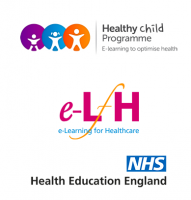Empowering and Motivating for Nurses



This session discusses the implications of empowering young people to take decisions about their own health care and how this may have an impact on how well professional health care advice is followed. The learner will be introduced to what aspects of treatment influence and motivate adherence to prescribed treatment regimens and will have an opportunity to assess practical approaches to help address ambivalence in order to influence behaviour change. This includes considering how to make conversations effective and helpful, and identify key factors that are important during conversations with young people.
Learning Objectives
By the end of this session you will be able to:
- Identify components of an effective conversation with young people
- Learn which aspects of treatment influence adherence to prescribed treatment regimens
- Consider the different meanings of empowerment
- Practice ways to help address ambivalence about changing behaviour
Health care professionals are all too aware of the effect of young people skipping medications or experimenting with behaviours that may prove to have negative outcomes. Adolescents are beginning to make their own health choices that can often be at odds with choices that we as adults would prefer. We often find ourselves having to talk to a young person to try and ‘make them see sense’.
Before commencing this session you should complete the following AH sessions:
- 04 001 Communication Skills in Young People (401-0018)
- 04 002 Health Communication and Young People: Setting the Scene (401-0019)
- 04 003 Gathering Information and Exploring Sensitive Issues (401-0020)
- 04 004 Explaining and Consent (401-0021)
Dr Deborah Christie is a Consultant Clinical Psychologist, Honorary Reader and Clinical Lead for Paediatric and Adolescent Psychological Services at University College London Hospitals NHS Foundation Trust. She works with young people searching for ways to live with chronic illness including diabetes, obesity, arthritis, chronic fatigue and chronic pain syndromes. Current research interests include neuropsychological outcomes in children and adolescent survivors of meningitis, quality of life measures in chronic illness and the development of effective multidisciplinary interventions for diabetes and obesity in children and adolescents.


Dick Churchill is a GP in Nottingham and former Associate Clinical Professor at the University of Nottingham. He has both clinical and academic interests in the health of young people and in mental health issues. He is a member of the RCGP Adolescent Health Group and a founder of the Association for Young People’s Health.
- Partner Notification course for Nurses
- Posted By eIntegrity Healthcare e-Learning
- Posted Date: 2024-11-01
- Location:Online
- The session will explore the principles, practical application and various ways of carrying out part...
- STI Management course for Nurses
- Posted By eIntegrity Healthcare e-Learning
- Posted Date: 2024-11-01
- Location:Online
- This session gives an overview of the current management of commonly encountered sexually transmitte...
- STI Testing course for Nurses
- Posted By eIntegrity Healthcare e-Learning
- Posted Date: 2024-11-01
- Location:Online
- This session will cover testing for common sexually transmitted infections (STIs) and blood-borne vi...
- Unintended Pregnancy and Abortion course for Nurse...
- Posted By eIntegrity Healthcare e-Learning
- Posted Date: 2024-11-01
- Location:Online
- This session discusses unintended pregnancy, how to conduct a consultation with women seeking aborti...
- Epidemiology and Transmission of STIs course for N...
- Posted By eIntegrity Healthcare e-Learning
- Posted Date: 2024-11-01
- Location:Online
- This session describes the epidemiology, risk factors, signs, symptoms and complications of common s...







